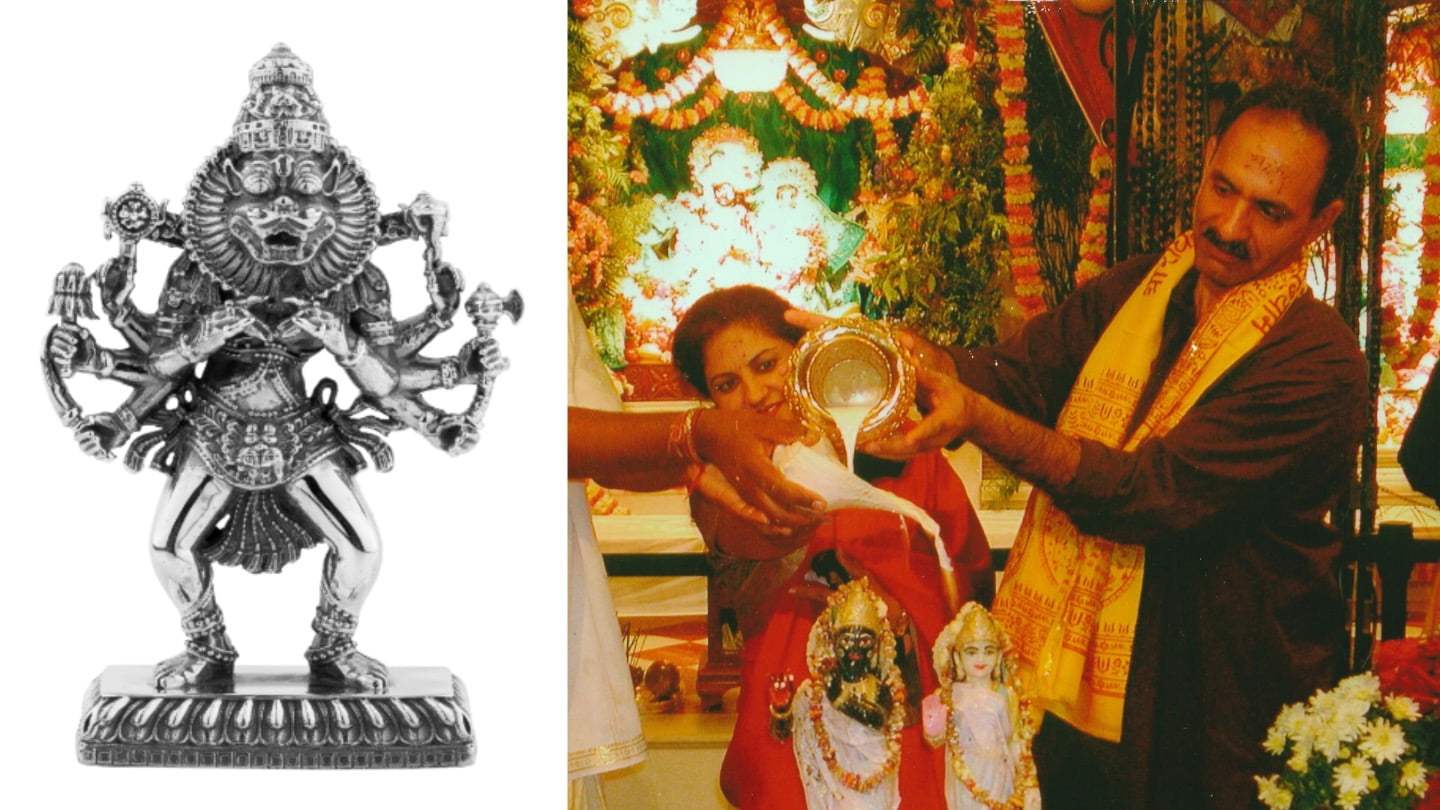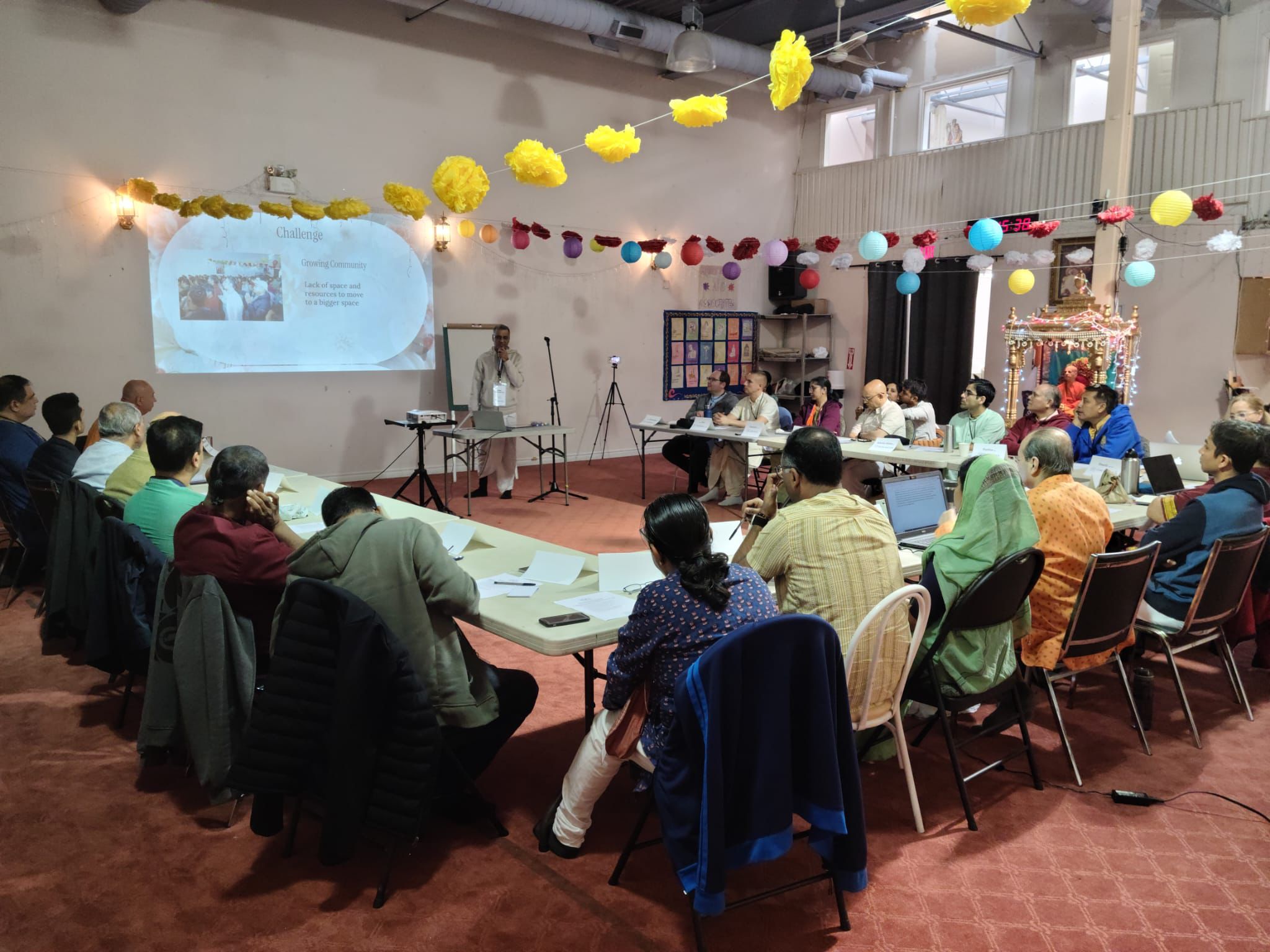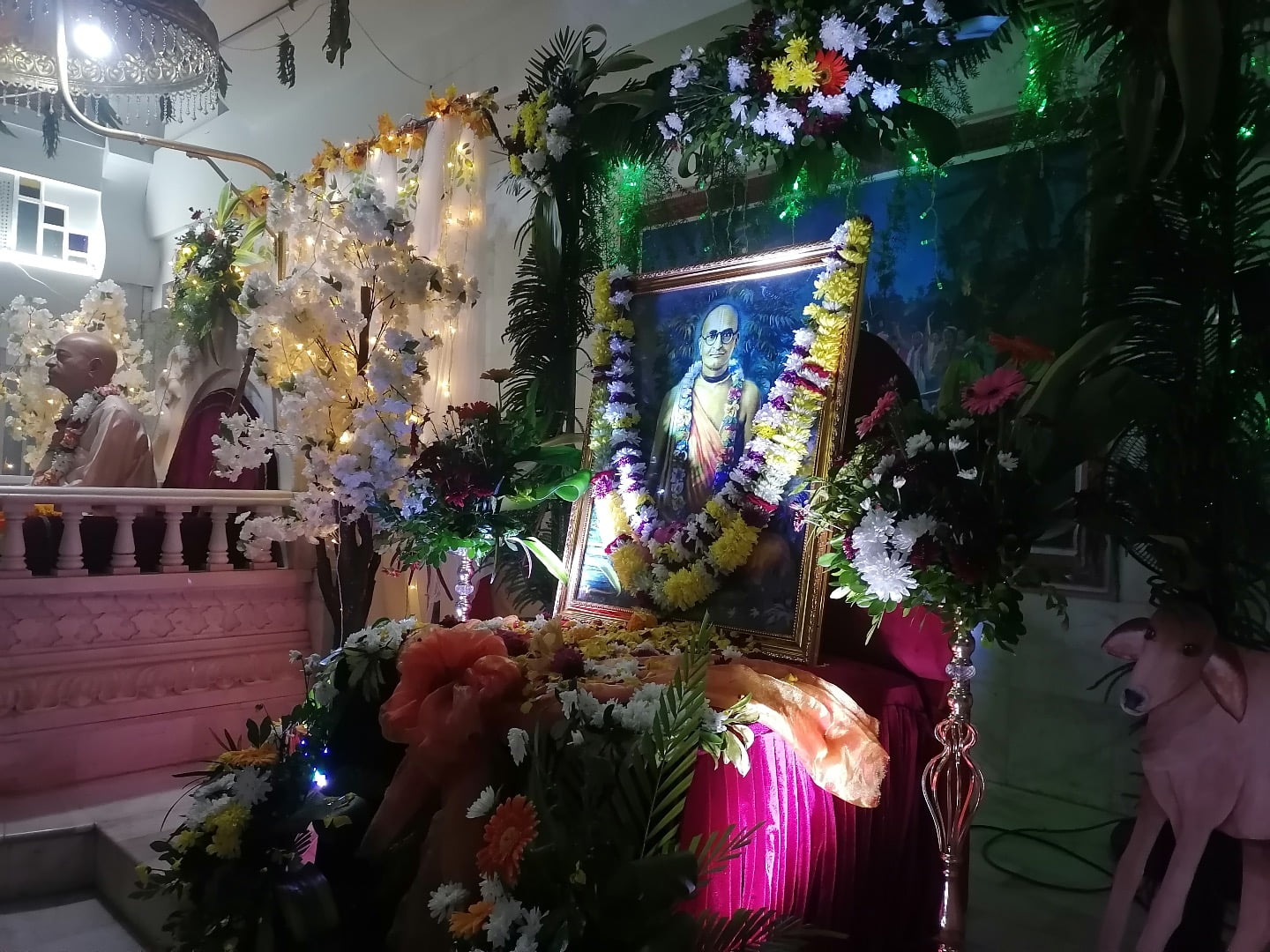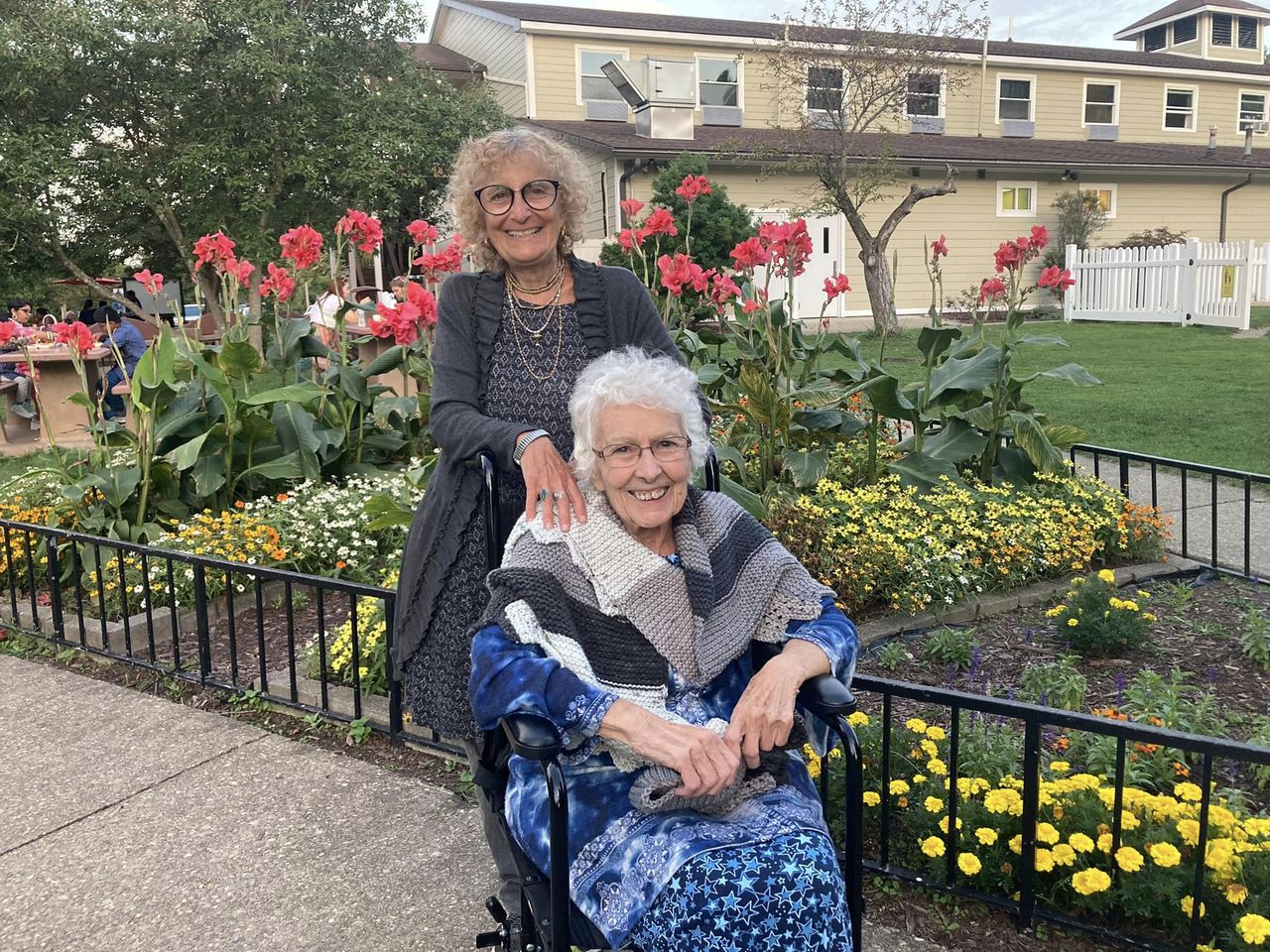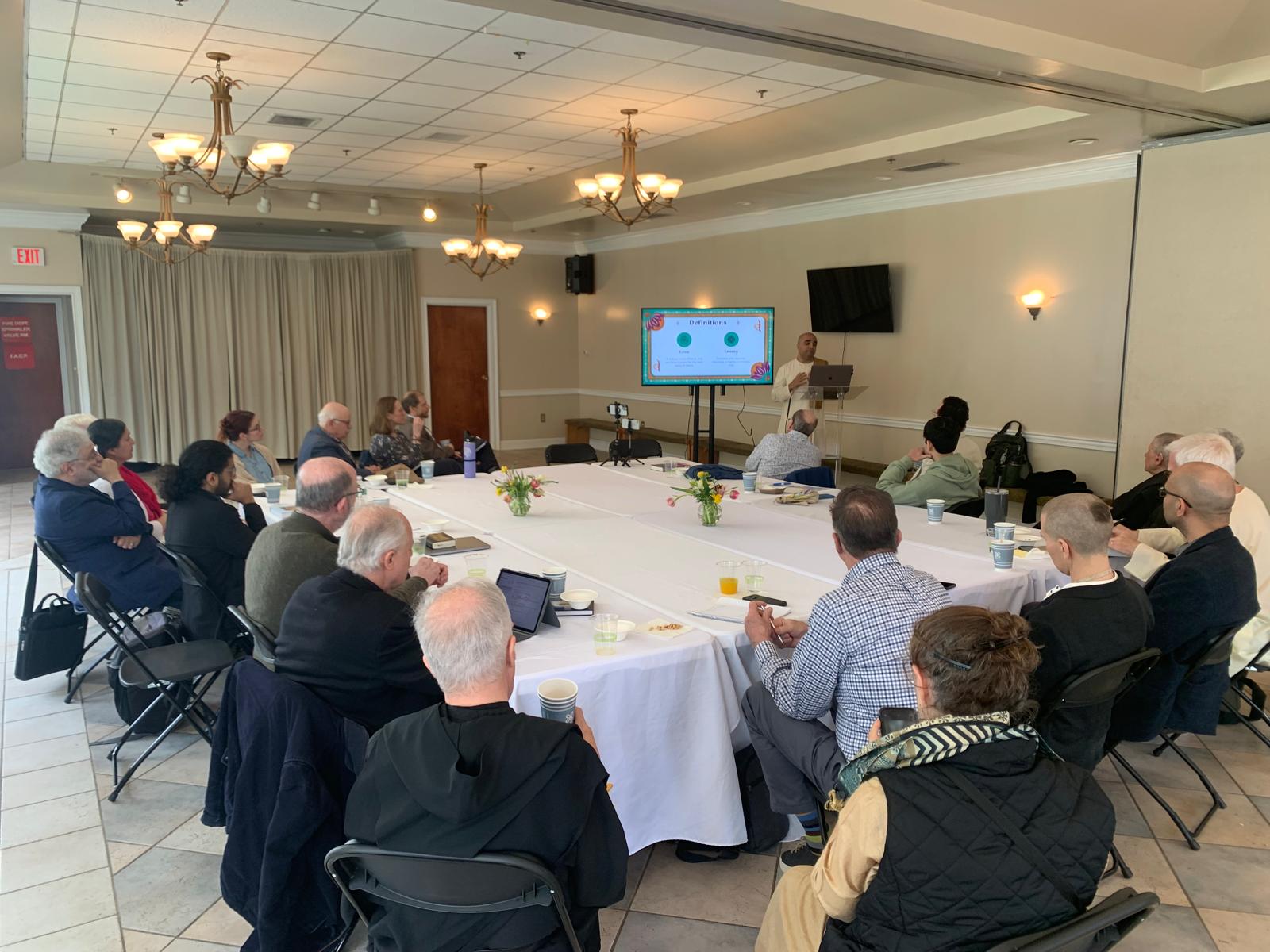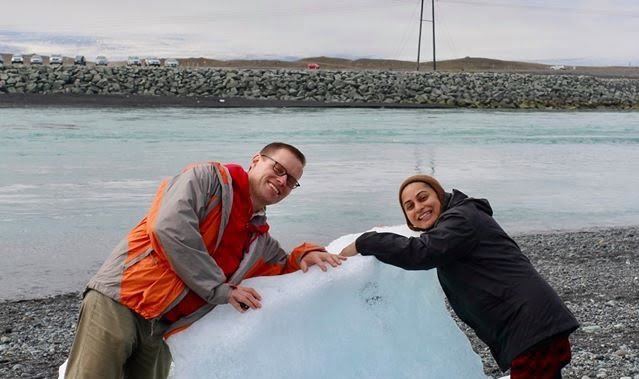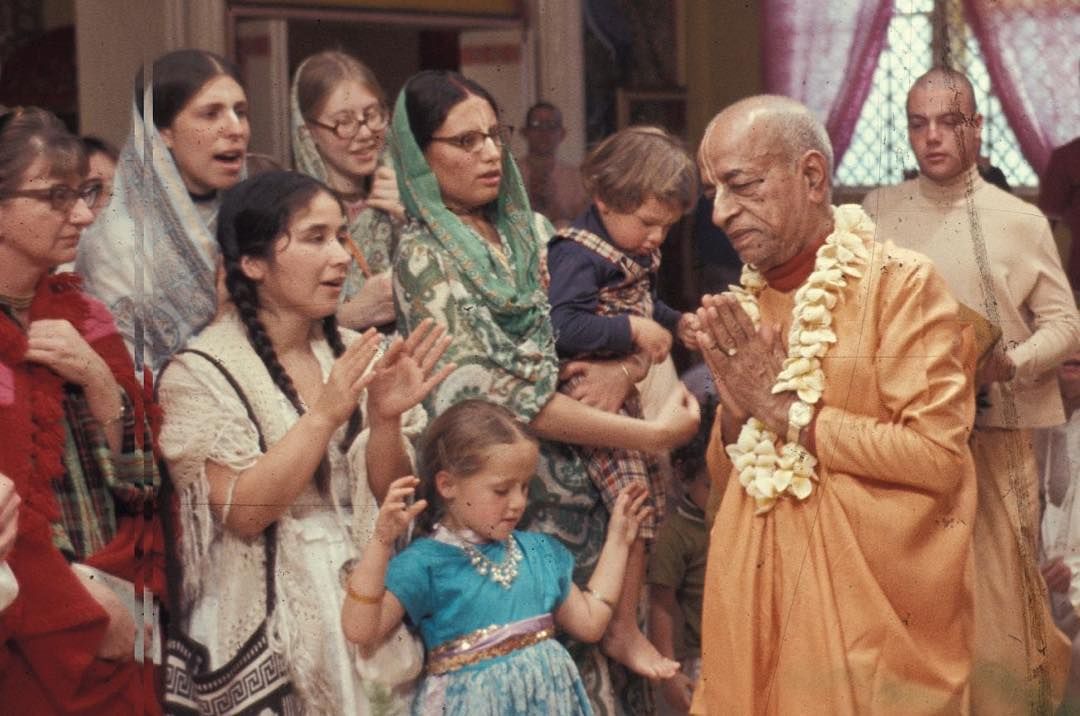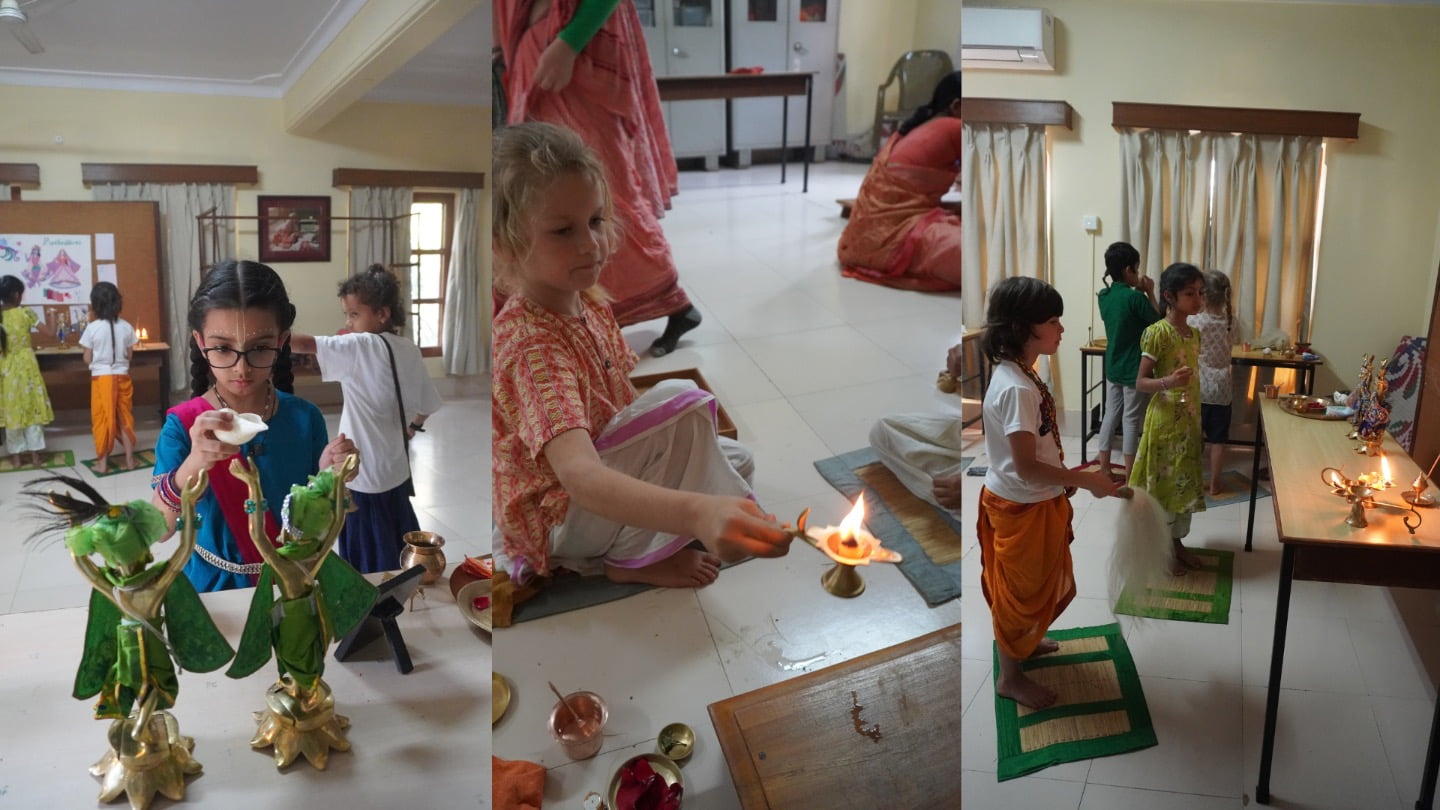Reflecting on Half a Century
By Tattvavit Das | Sep 18, 2015
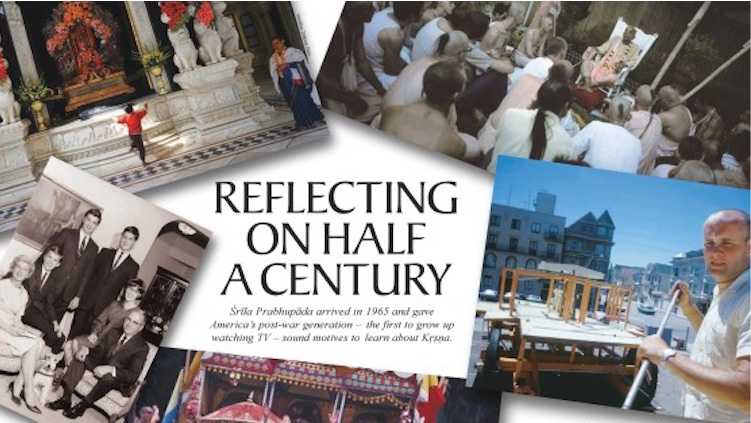
Srila Prabhupada arrived in 1965 and gave America’s post-war generation – the first to grow up watching TV – sound motives to learn about Krishna.
Who was Srila Prabhupada, new in America fifty years ago? A hero. Who is he now for me?
In Tim Parks’s story Reverend, I read about a sixty-year-old Englishman looking back thirty years to recall his deceased father, a clergyman: “He didn’t feel like doing research, putting his father’s name into Google or delving into archives. . . . What he wanted, rather, was to assemble a picture of his father” from memory. Disciples ought to be able to say what their guru is for them, what part of their personality they owe him. How did our separate cultures interface? How did my background shape my involvement in and understanding of his movement?
Prabhupada turned sixty-nine going to America by sea. In my town in Minnesota, it was summer and I was nearly fifteen. Our baseball team practiced most mornings. The town has a golf course and a public swimming area next to a narrow river. After seeing the Beatles on TV, in 1964, we boys grew long hair. I delivered a Minneapolis newspaper to houses, sometimes stopping at St. Mary’s Villa to see my maternal grandmother, who, after outliving my grandfather, would die there.
Prabhupada’s thirty-five-day ocean crossing brought on two heart attacks. He dreamed of Lord Krishna telling him not to fear, assuring him of protection. In his diary he wrote about coming to the West to teach in English, just to execute his guru’s order. On September 19 he reached New York, a grandfatherly gentleman far from home, and so poorly accommodated in Manhattan for nine months that today people admire his patience and valor.
By risking his life when most men retire, Prabhupada demonstrated a devotee’s unselfishness. A devotee – happy having Krishna – knows perfect happiness yet wholeheartedly cares about others and hence conveys to everyone the bliss of serving Krishna. In fifty years, in eighty languages, those of us he inspired have distributed a half billion of Prabhupada’s books. Thanks to his good influence, for the first time in history people all over the world now take Krishna consciousness seriously.
My Swedish friend the scholar Jan Olof Bengtsson observes, “Whether the potential historical significance of his mission to the West will be realized depends on how his organization (ISKCON) and its work are received in the West by Westerners. And this, in turn, depends, on the extent to which his followers succeed in achieving a deep, long-term, selective translation and integration of Gaudiya Vaisnava spirituality into the historically evolved culture and society of the West, taking into account its particular characteristics and history in a more conscious, deliberate, and discerning manner than has heretofore been done.”*
Bad Choices
My grandmother left an impression on my heart when I was young. She said something to my mom, pretending not to see me under the kitchen counter. She indirectly said it to me, because I had grown old enough to start discerning what is acceptable.
“Tommy has a bit of the devil in him,” Grandma said.
I thus began to benefit from the informed opinion of another, which is a powerful motive for serious self-criticism. While I attended college, Prabhupada’s cultured opinions started motivating me.
“We are often confident even when we are wrong,” writes Daniel Kahneman “and an objective observer is more likely to detect our errors than we are.”
Kahneman received the 2002 Nobel Prize in Economics for his work on the psychology of judgment and decision-making. At the University of California, Berkeley, he was the graduate-school advisor of my longtime friend and former classmate Terry Odean, who gave me Kahneman’s best-seller, Thinking, Fast and Slo,w as a Diwali present. Terry holds a chair at Berkeley’s business school.
Kahneman writes, “[Improving] the ability to identify and understand errors of judgment and choice, in others and in ourselves . . . may suggest an intervention to limit the damage that bad judgments and choices often cause.”
Prabhupada showed anyone how to recognize a key error: misidentifying the body or mind as one’s permanent or existent self. Aham brahmasmi: I am a spirit soul. And souls entangled in the world of matter need to get out of this dreadful temporary environment. For that we need a process. A guru who really represents God suggests practical interventions to limit the damage caused by the bad choice of thinking only of this life.
Prabhupada offers the practice of Krishna consciousness according to firm guidelines. This process reminds me of the braces that straightened my teeth. Every three weeks the orthodontist adjusted the wires and clamps – tightly! Similarly, Prabhupada ordered us to restrict sex to procreation; to not gamble or get intoxicated; to not eat meat, fish, or eggs; and to chant the Hare Krishna mantra. By these practices, we can gradually reach the spiritual level at which we constantly experience ourselves as transcendental to conditional identifications and attachments. And by gradually obtaining love of Krishna, we make our lives successful.
In Los Angeles on Sunday, January 13, 1974, I saw Prabhupada for the first time. Only two days earlier I had arrived in California – now twenty-three – to try living in San Francisco’s temple for six months. In his class, Prabhupada discussed the states of ignorance, passion, and goodness. A soul’s activity in contact with matter becomes adulterated in acts of foolishness and desire. Without eliminating these effects of ignorance and passion, he said, and elevating yourself to the mode of goodness, you remain ineligible to be the Lord’s devotee. Analogously, without an undergraduate degree, you cannot enter law school. Good devotees then make further progress and rise to the transcendental level of seeing Krishna “by dint of pure affection” and become completely happy.
The analogy was personally relevant. Bachelor’s degree in hand, I had applied to law school and graduate school. The University of Wisconsin in Madison accepted me into a Master’s program in Buddhist studies. D. T. Suzuki’s books inspired me (maybe, like him, I could become a writer and practitioner). But nirvana, void and unvaried, seemed not worth years of study. I became more attracted to Krishna’s wondrously varied eternal world, illustrated in Prabhupada’s book Krsna, which George Harrison had funded.
John Berryman, a scholar and Pulitzer Prize–winning poet at the University of Minnesota, killed himself when I was taking his seminar. I wondered whether I might end up like him. (The first article I wrote for this magazine discusses this poor soul’s desperation due to lust and alcoholism.) Instead of becoming a graduate student, I became obligated to Prabhupada, an extraordinary teacher free of the faults of most intellectuals. He offered an invaluable remedy for the bad choices I was making.
One Particular Disciple
Prabhupada’s senior disciple in San Francisco especially carried me along for half a year – when a demanding schedule and absorption in Krishna still seemed strange and overwhelming. He was firm on himself and humble with others.
“Bhakta Tom,” he said the first week, “we’re going out to chant Hare Krishna. Please come with us.”
Jayananda’s sincerity encouraged me. He regularly organized the inspiring chanting and dancing on the streets. Tall and charismatic, he played a drum and led the singing.
On a recording, Prabhupada pauses his lecture upon seeing Jayananda entering the room, and says, “Jayananda looks like Sri Caitanya Mahaprabhu. Yes! He was tall and stout and strong. Caitanya Mahaprabhu.”
Sri Caitanya benevolently gave humanity a dispensation, five hundred years ago, to chant Krishna’s names as the sufficient means of spiritual deliverance. Just a recipient of the grace of Prabhupada and Sri Caitanya, I lacked any further qualifications to join the Hare Krishna movement.
I had studied intellectual history, the history of ideas (such as racism in philosophy and literature). I protested the military-industrial establishment’s Vietnam War and adopted some hippie ways, a countercultural means of renouncing the materialism of Western culture and society. In the mainstream, the birth control pill and legal abortion encouraged sexual irresponsibility. So did hippiedom, but as the scholar Jan Olof writes, to the extent that hippies authentically sought spiritual enlightenment, they were, in a sense, right to “drop out,” and providentially they were present to receive and carry on Prabhupada’s mission when he arrived. Prabhupada often quipped that he had made hippies “happies.”
There were things I didn’t like about the temple, such as the members’ lack of participation in deciding on which direction the center took, but within me were many shameful tendencies even more unlikable, for which I needed spiritual aid, so I mostly cooperated with the devotees.
Jayananda died of leukemia in mid-1977, renowned as the organizer of the Ratha-yatra (“Chariot Festival”) in San Francisco, and the pioneer of the Ratha-yatra parades on Fifth Avenue in New York and Venice Beach in Los Angeles. We talked in the Manhattan temple for the last time. He made the point – again, about bad choices – that unless we keep serving Krishna, our mental state will be just crammed with decisions offered by maya, Krishna’s illusory energy, and we will be perpetually entangled in the temporary world. Humble Jayananda knew, from Srila Prabhupada, the art of making the better choice.
Tours in North America
Prabhupada’s last four years were the years I had his association. I saw him at festivals and heard his classes in Los Angeles, San Francisco, New York, Dallas, Denver, Chicago, Detroit, and Toronto. I traveled across North America twice in the mid-1970s with a group that sold his books to college libraries and professors. We not only visited all the ISKCON temples but followed Prabhupada’s summer tours. At colleges, I accompanied the group leader, Satsvarupa Dasa Goswami, to classrooms where he was invited to speak, and I did research in libraries for his first book, Readings in Vedic Literature.
Speaking at a Sunday program in Toronto, Prabhupada warned Indian guests not to forget Krishna; otherwise, there would be consequences. Now in the West, he said, you have big cars, good salaries, nice apartments – but if you do not offer your food to Krishna (which the Bhagavad-gita recommends), then in your next life you will become cockroaches in your cars. Offering Krishna what we eat nourishes the body spiritually and counteracts karmic reactions. Thus Prabhupada identified errors of judgment and suggested better decisions.
In Dallas, on a scorching summer evening Prabhupada was sitting at the top of a flight of outdoor cement steps, about to speak with a disciple. The day’s heat was rising from the cement, so he had someone bring a bucket of cold water and pour it over the landing. I stood beside the bottom step and railing, just to watch (not really within earshot). But he saw me from the corners of his eyes and gently raised his folded palms as a signal for me to leave the private conversation.
Earlier that evening we had all met him in the garden. For me, the most important thing he said was that if you can control your tongue, you can control all your other senses. He meant: chanting Hare Krishna, eating only food offered to Krishna, and telling others about Krishna. Traveling worldwide, Prabhupada spoke daily to people about how to know Krishna in truth. In Dallas, under the evening sky, he described seeing Krishna:
“Krishna’s energy is not different from Krishna. The sunlight is Krishna’s energy, air is Krishna’s energy, water is Krishna’s energy, land is Krishna’s energy, the sky is Krishna’s energy. This is Krishna’s, or God’s, all-pervasiveness. The universe is an expansion of Krishna’s energy. Every working of nature – Krishna is doing that. So God is present everywhere. If we can learn how to see Krishna always, then our lives are successful. And this is possible by gradually increasing our love for Krishna by the devotional process, little by little, little by little. Just like in practical life, we begin to love somebody gradually, one thing after another, not all of a sudden. Then surrender – that is the ultimate state of loving affairs. We surrender to Krishna out of love, which is the ultimate perfection.”
Memories & Memorials
In 2012 I went to my hometown after being away for forty years. Now my brothers and sister live elsewhere, but we held a reunion at my brother’s summer home at a lake. We had inherited Catholicism. When young, we sometimes prayed: “Now I lay me down to sleep/ I pray the Lord my soul to keep/ And if I die before I wake/ I pray the Lord my soul to take.” God is everywhere and above it all – knowing everyone’s desires – so God is the most capable protector at the time of death, we learned.
We used to sing a likeable hymn in church: “Holy God, We Praise Thy Name.” I and other altar boys memorized Latin prayers for the Mass. Nowdays, I chant Sanskrit prayers and the holy names in the Hare Krishna mantra.
The church has not changed, except for the addition of ceiling fans. It looks exactly the same, with nothing replaced but the confessional stalls. Even the same old door handles remain in use, and the closet that held the altar boys’ cassocks still holds them.
Colorful pamphlets at the front entry presented positions on faith and practice, but none addressed meat-eating or intoxication – two Catholic allowances beneath Prabhupada’s purer standards.
Around the early 1960s, on certain rare holy days the priests prostrated themselves on the sanctuary floor. It was in a routine, prostrated pose of offering respect to God that I saw Prabhupada for the first time (just before his class in Los Angeles that January). Bowing to show respect to the Divine is something atheists will never do, but God comes to everyone as death, and then atheists are forced to fall down before a higher power. Better to voluntarily surrender, Prabhupada advised.
A local graveyard holds my parents’ ashes and my grandparents’ bodies. I sat on the grass in front of the tombstones and composed a prayer, while my brother walked about and waited. This capable couple – by Krishna’s arrangement, meant to look after me the best they could – left a financial trust for my use in illness and old age.
When visiting India, I often go to a white-marble building where Prabhupada’s body is buried. He passed on in Vrindavan, Krishna’s transcendental childhood town. Because this sacred place aids elevation to Krishna’s spiritual abode, devotees go there to die. So a Bhaktivedanta Hospice has been built for ISKCON devotees.
Prabhupada fasted for months as his life dwindled – something his father did in 1930. When I saw the 1977 photos of Prabhupada’s emaciated body, his seriousness of purpose shocked me; my respect and love increased. A lot of dying people cannot process food, but they are administered nutrition intravenously. Prabhupada insisted on not being hooked up to tubes and depended on Krishna till the end.
Last November, at the evening observance of the anniversary of his last hour, sitting in that same room of his house I felt God’s presence in sound while hearing the Hare Krishna mantra beautifully sung by Nadiya Mani Dasi, a married young lady who grew up as a devotee in England. I thought, Krishna protected Prabhupada, his dear devotee. Very intimate associates of Krishna appear in the world to make the Lord’s mission happen, and then they return to the spiritual world.
It is offensive to envy a guru who is Krishna’s pure devotee, to consider him an ordinary man or disobey his instructions. Prabhupada sometimes quoted a text warning us: Spiritual realization is difficult and sharp like a razor’s edge. A sharp blade gives a good shave, but inattentiveness, or committing offenses, causes bloodshed. Fortunately, in the association of devotees, we learn to avoid offenses. So, from time to time, we can congratulate ourselves on progress: “Lesson learned!”
In 1959 Prabhupada was sixty-three when he accepted sannyasa, a renounced stage of devoting all his time and energy to the service of the Lord. I am now two years older than he was then, so it is not difficult for me to understand how he felt, physically and mentally, at this age. During his next six years he translated and commented on the First Canto of Srimad-Bhagavatam, which he published and took to America.
It is more difficult to understand the perfect state of his intelligence at this time: resolute, single-minded, clear of everything that could impede him in all he had to do in his service to his spiritual master, and willing to let Krishna do with him whatever Krishna liked. To preach in the West he humbly repeated Krishna’s message, with strong faith in Krishna’s names, and his glorious activities made Krishna glorious worldwide.
He writes that when people are instructed about following the Supreme Personality of Godhead and they adopt Krishna consciousness, “that is victory for the Lord,” for Krishna then reclaims these souls. Srila Prabhupada is a general, a warrior winning these victories for the Lord.
* * *
Tattvavit Dāsa recently edited a history of Śrīla Prabhupāda’s Kṛṣṇa-Balarāma Temple, entitled Vrindavana Is My Home, by Daivīśakti Dāsī. He helped Jayādvaita Swami with the e-book version of the book Vanity Karma: Ecclesiastes, the Bhagavad-gītā and the meaning of life, published this September. Tattvavit blogs at tvdas.tumblr.com.



